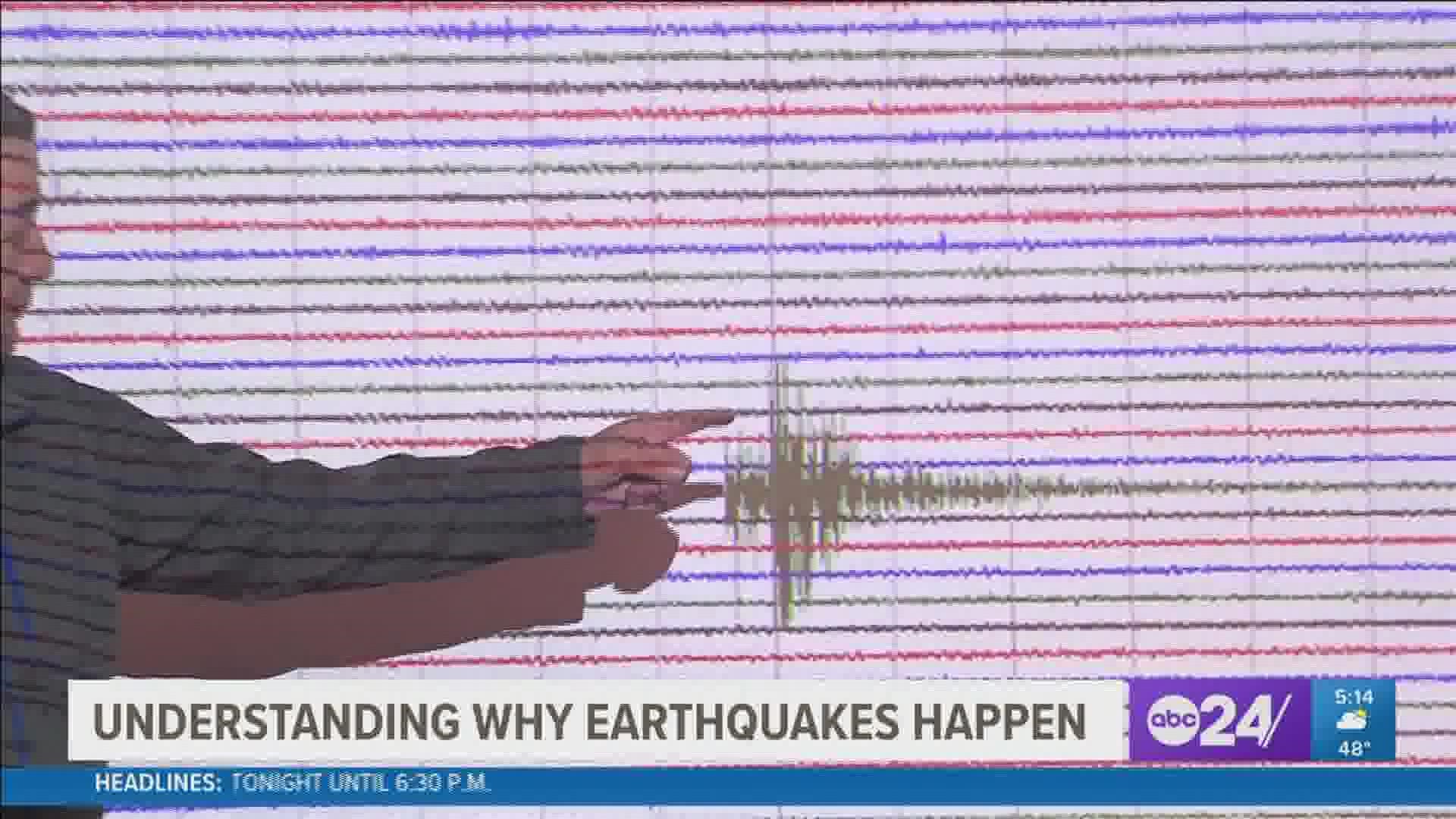MEMPHIS, Tenn. — If you haven't lived in the Memphis area for a long time, you may be surprised to know that the Mid-South is on top of an active fault line, and earthquakes aren't uncommon.
Gary Patterson is a geologist with the University of Memphis' Center for Earthquake Research and Information. There, a team of researchers study earthquakes and fault lines from across the country and the world.
Patterson explains that the city of Memphis is actually on the southern fringes of the New Madrid Seismic Zone, and our area experiences over 400 earthquakes every year. Most are too small to be felt, but a few are noticeable.
History of the New Madrid Seismic Zone
The area of fault lines extending through southern Missouri, northern Arkansas, and western Tennessee, also known as the New Madrid Seismic Zone, is most well known for a large series of earthquakes in the winter of 1811 and 1812.
It's reported that the largest of these earthquakes changed the course of the Mississippi River, creating several oxbow lakes including Reelfoot Lake, and caused church bells to ring as far away as Boston.
Since then, there have been several other earthquakes, but none quite as strong. In March of 1976, a 5.0 magnitude earthquake centered near Marked Tree caused minor damage in Memphis. More recently, a 2019 earthquake in Northwest Tennessee also sent light tremors as far south as Memphis.
Why do earthquakes here travel farther than places like California?
A 4.0 magnitude earthquake in Missouri will be felt much farther away than a 4.0 magnitude earthquake in California. This is because the rocks east of the Rocky Mountains are older than those in places like California, and are often denser with fewer cracks. This allows earthquakes on the East Coast to travel uninterrupted through hundreds of miles of rock, free of any cracks to slow the tremors down.
Earthquake safety tips
While earthquakes can't be predicted, there are a few things you can do to prepare.
First, remember to keep an emergency supply kit of non-perishable food, water, and medicines in your home. This may also be helpful for other kinds of inclement weather, like winter storms and tornadoes.
When shaking begins, experts say to drop, cover, and hold on! Try to cover your head by crawling under a sturdy piece of furniture, like a desk or table. If you're in bed, turn face down and cover your head with a pillow.
After a major earthquake, use extreme caution. More than likely, there will be downed power lines, gas leaks, and fires.

